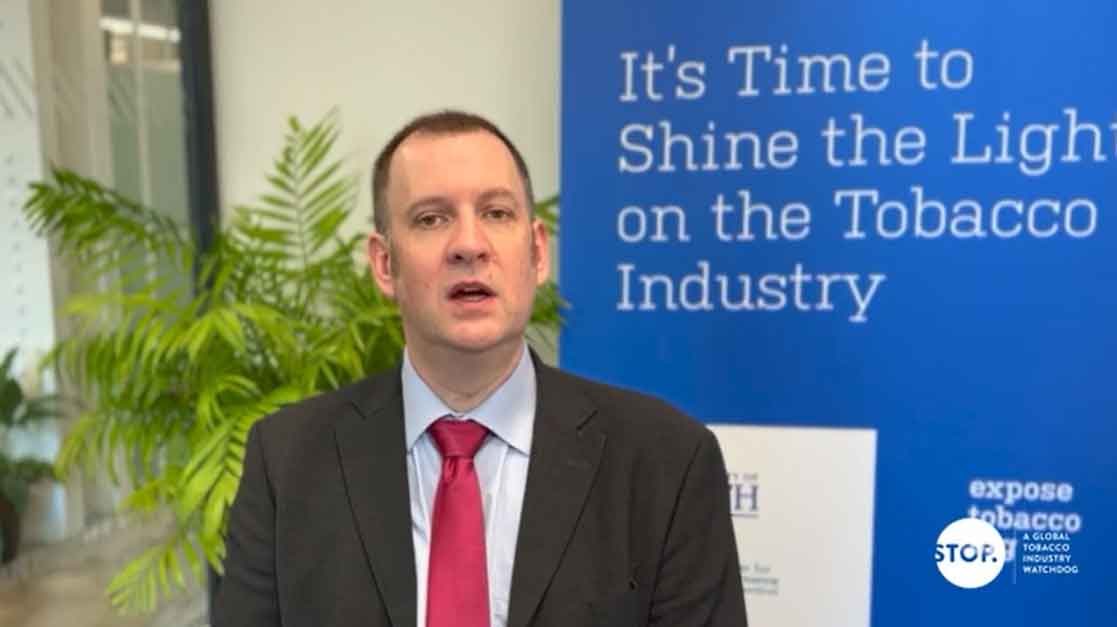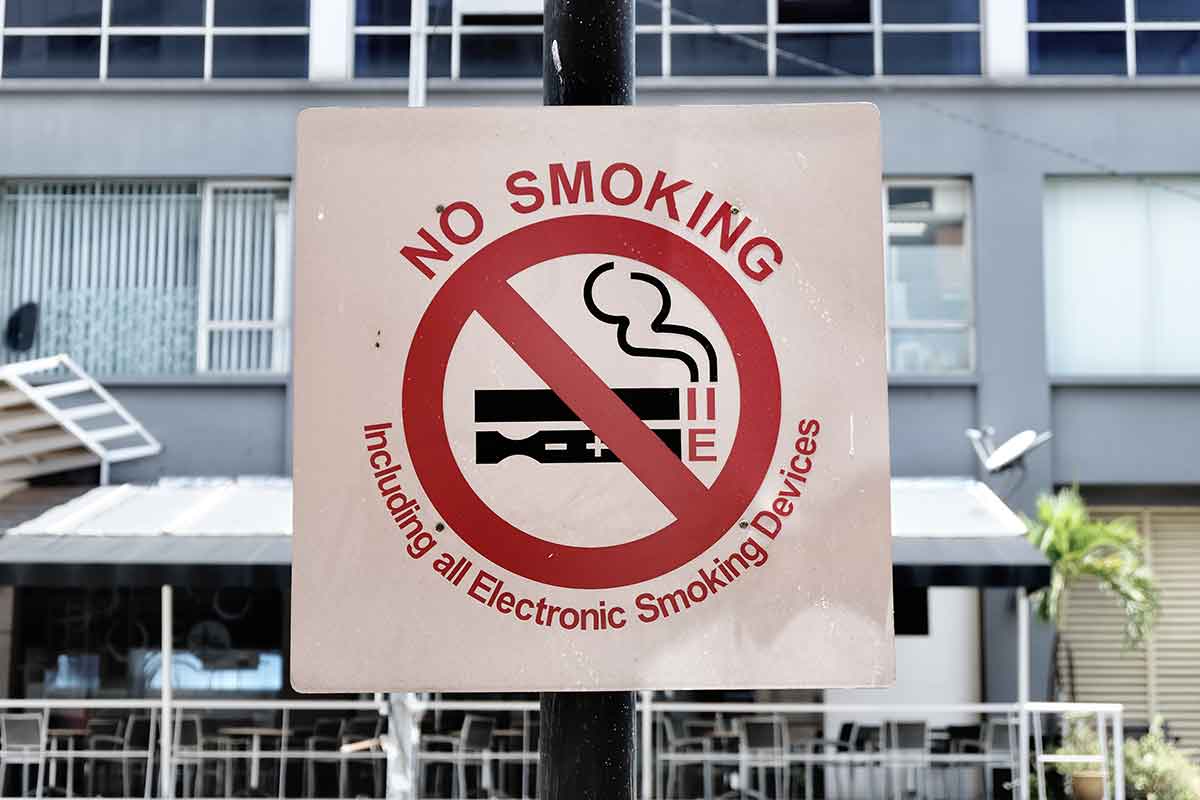- Resources
- News
-
-
Get Email Updates
Sign up for STOP's emails and never miss an update on our latest work and the tobacco industry's activity.
-
Get Funding
Ready to tackle industry interference? You could be eligible for a grant.
-
Share a Tip
Do you have information on tobacco industry misconduct in your country? Let us know.
-
Get Email Updates
Sabotaging Policy
February 20, 2023

New report documents tactics that undermine tobacco tax increases designed to reduce smoking
Read the press release in Indonesian or Urdu.
(New York, United States and Bath, United Kingdom, February 20, 2023) – Tobacco companies are using a variety of pricing strategies to weaken the impact of tobacco taxes, according to a new report from STOP, a tobacco industry watchdog. The report, The Price We Pay: Six Industry Pricing Strategies That Undermine Life-Saving Tobacco Taxes, is the first to combine research on the industry’s tactics in the global south and compare them with tactics seen in wealthier countries. It cites examples from nearly 30 countries, including Bangladesh, Mexico, Pakistan, Turkey and the United Kingdom, which have recently passed tobacco tax increases.
The strategies detailed in the report include:
- “Differential Shifting:” Overshifting increases the price of a pack of cigarettes above the tax increase, where consumers will tolerate it, delivering greater profit to tobacco companies. With undershifting, tobacco companies absorb some of the tax increase rather than passing it on to consumers, if a price rise may encourage smokers to cut down or quit. Differential Shifting is the strategy most favored by tobacco companies, according to available research, with overshifting more common in richer countries and undershifting more common in developing countries. Tobacco companies may also pursue both strategies in the same country, increasing the price gap between premium and budget products
- Introducing new brands, variants, segments or products, like cheaper brands to keep prices low
- Using price discrimination and promotions such as selling the same product at different prices to different customers
- Price smoothing: Introducing the tax increase gradually, over time, so consumers are less likely to notice and decide to cut down or quit
- Adopt shrinkflation: Disguising the price increase by reducing the number of cigarettes in a pack or reducing their size
- Changing product attributes or production processes such as introducing cigarette-like cigarillos if they are taxed at a lower rate
Tobacco taxes are critical to reducing the burden of tobacco use but only work if consumers feel the impact in the form of higher prices. Tobacco companies can frustrate the strategy by absorbing tax increases to keep prices low and maintain market share. It’s estimated that 80 percent of the world’s smokers are in the global south, in countries where the gap between the most expensive and cheapest cigarettes is generally larger than in richer countries. On average, cigarette prices in Africa—a continent with comparatively low levels of tobacco use the industry is now targeting for growth—are the cheapest in the world.
“Cigarette corporations enjoy significant pricing power and profitability. This report highlights how they weaponize price to keep people using their addictive and deadly products,” said Dr. Rob Branston, co-author of the report, Associate Professor in Business Economics at the University of Bath School of Management and part of the Tobacco Control Research Group. “A key takeaway is that the industry exploits any complexity in the tax system, so the biggest health benefit is most likely to be gained by implementing high tobacco taxes and prices, especially when they are applied consistently across different tobacco product categories and by removing single sticks from the market.”
In some countries like Bangladesh, Indonesia, Colombia and several African countries mentioned in the report including Botswana, Zambia, Mozambique and Ethiopia, the availability of single cigarette sticks complicates the market. Single sticks offer the industry a chance to deploy a second wave of pricing tactics, which might be different to or the same as those for cigarette packs. Tax increases on single sticks tend to be undershifted, possibly to offer cheaper cigarettes to consumers and maintain their smoking habits. Overshifting was identified in Colombia, possibly linked to increased demand from consumers switching to single sticks instead of quitting when pack prices increased. Anecdotal evidence indicates that the tobacco industry uses such informal channels to obscure their pricing tactics and ensure their products are affordable to youth and cost-conscious consumers.
Governments can prevent industry manipulation
The report recommends actions governments can take to stop tobacco companies from weaponizing price. These include:
- Banning promotional discounts;
- Limiting the number of times the industry can change their prices to tackle price smoothing;
- Specifying tobacco pack size to prevent shrinkflation;
- Simplifying tax rates between similar products and limit the number of brands tobacco companies can introduce to prevent consumers switching to cheaper brands;
- Introducing bigger tax increases so the government, not the industry, gets the benefit of higher prices;
- Ending the sale of single cigarettes, which make tobacco accessible to youth and other cost-conscious groups;
- Considering directly setting tobacco prices to remove industry influence.
Co-author Dr. Zaineb Sheikh of the Tobacco Control Research Group at the University of Bath commented: “A cigarette company’s objective is to balance enhancing their revenues with maintaining their market share. And most importantly—to keep young people hooked so they can keep earning profits. There is little consideration of the impact on public health and that’s what governments must put ahead of the industry’s narrow business interests.”
Please contact the STOP press office for more information or to speak to a STOP spokesperson.
About STOP (Stopping Tobacco Organizations and Products)
STOP is a global tobacco industry watchdog whose mission is to expose the tobacco industry tactics that undermine public health. Comprised of a network of academic and public health organizations, STOP researches and monitors the tobacco industry, shares intelligence to counter its tactics, and exposes its misdeeds to a global audience. STOP is funded by Bloomberg Philanthropies as part of the Bloomberg Initiative to Reduce Tobacco Use. For more information, visit exposetobacco.org.




